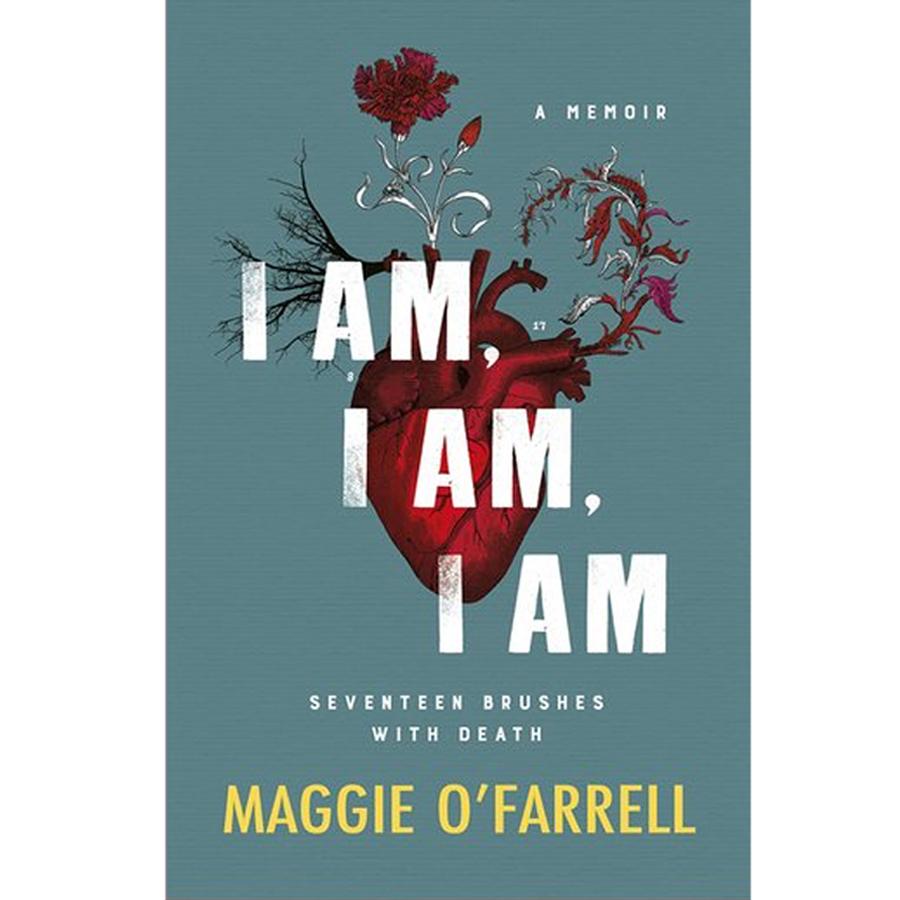

For this month's TOAST Book Club we review I am, I am, I am by Maggie O'Farrell.
We have all inadvertently danced with death: stepped into traffic without looking, or slipped on a treacherous footpath. Renowned novelist Maggie O'Farrell has done so seventeen times and has lived to write about it, producing a survivor's tale like no other. I Am, I Am, I Am: Seventeen Brushes with Death is O'Farrell's first work of non-fiction, a memoir that often reads like a literary thriller.
It is cleverly and viscerally organized, with chapters titled by date and body part (Lung 1998, Abdomen 2003, Intestines 1994.) Each relates an episode when O'Farrell's life was endangered: often seriously. And like her novels, it is tense, gripping, meticulously rendered, and ultimately, deeply moving.
With this book one has a sense that the author has taken a deep breath and exhaled a lifetime's worth of adrenaline, anger and fear. There is a cathartic, confessional quality to the writing, as if these very private tales are being whispered urgently in your ear. And with the telling of them, O'Farrell can both expel her demons and imprint the legacy of survival on those around her.
And what an extraordinary legacy that is. Through a long series of improbable but utterly believable incidents (a few the consequence of lapsed judgment, but most down to just plain bad luck) we learn that O'Farrell has led a life punctuated by misfortune, menace and peril. And from the opening chapter, Neck, when a solitary outing in the mountains results in a shocking encounter (and which any parent of a gap-year child will surely feel compelled to place in front of them as a cautionary tale) we know that we're in the hands of a master. This is controlled, artful storytelling at its best, made all the more potent because it is true.
O'Farrell is clearly made of gritty stuff. As each subsequent episode unfolds, she will be paralysed for months, lose blood by the bucketful, feel the whisper of a knife blade in her hair, a cord wrapped ominously round her neck and be ever mindful of the consequences of her experience. The conclusion is that a life lived at risk and indeed danger itself heightens our awareness, sharpens our reality, and ultimately refines our understanding, making us better able to live.
And, in O'Farrell's case, better able to write about living.
So perhaps we have the many faces of danger to thank for the gift of Maggie O'Farrell the novelist: the murderous walker encountered on a remote mountain trail, the killer wave on an Indian Ocean beach, the bacterial virus lurking in the bloodstream, the pair of predatory drifters on a back road in France. All of these have clearly shaped O'Farrell's sensibilities, both as a woman and a writer.
By the end we also understand what impelled her to write this book: in the final chapter (Daughter) we learn that one of O'Farrell's three children lives with a rare immunology disorder that puts her at extreme risk of anaphylactic shock in the course of each day. Both mother and daughter live continuously on red alert, their lives conducted against a constant background hum of potential peril.' O'Farrell longs for her children's lives to be unencumbered by worry, by discomfort, by the judgement of others.' She longs for them to live the life that she has led.
This is not so much a memoir then, but a fierce shout of relief, defiance and gratitude. And a welcome addition to her canon.
The TOAST Book Club is published on the last Friday of every month. The reviews are written by Betsy Tobin, author of five novels and joint founder of [email protected] an independent bookshop just up the road from our head office, situated in leafy Highbury. Though the book club exists in a purely digital sphere we hope that you will add your own opinions and thoughts below. All who comment will be entered into a prize draw to win one of our new tote bags.
This season TOAST is running a book sharing campaign, in store and online. Join in the conversation here.
Add a comment